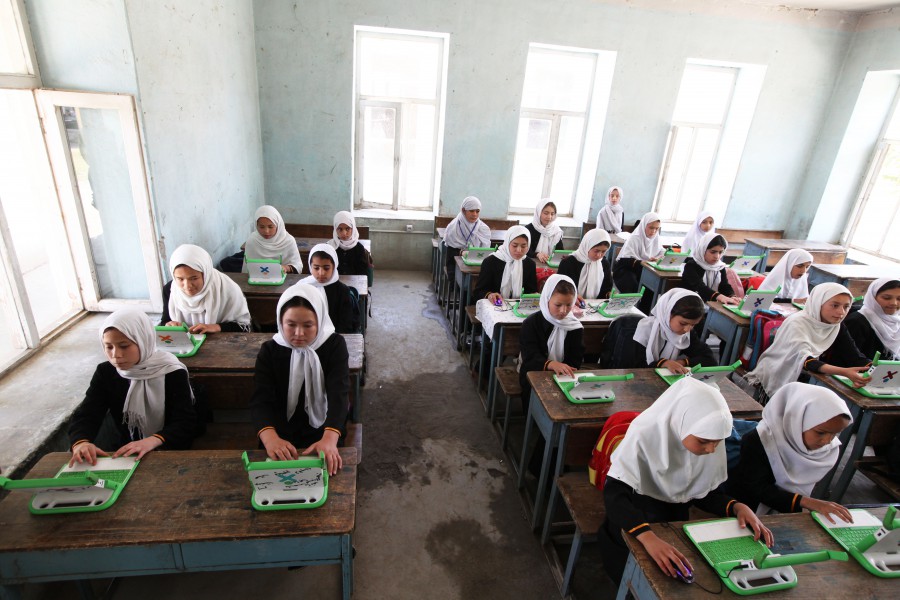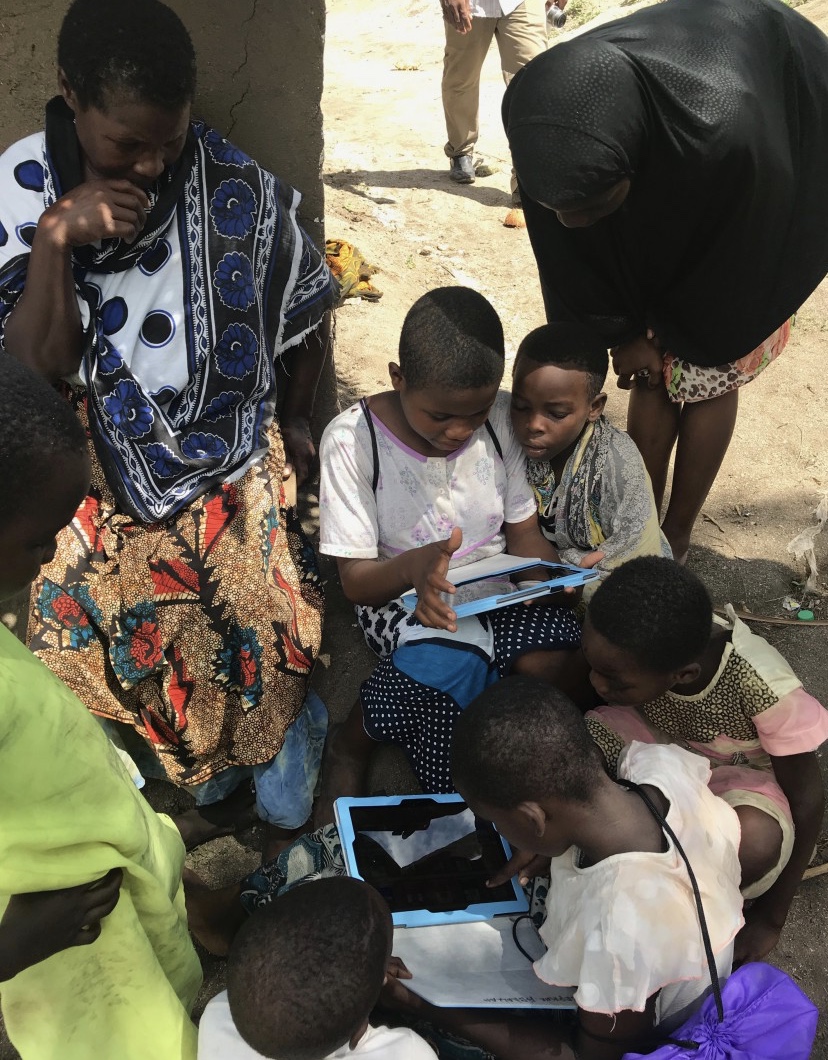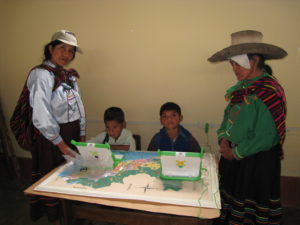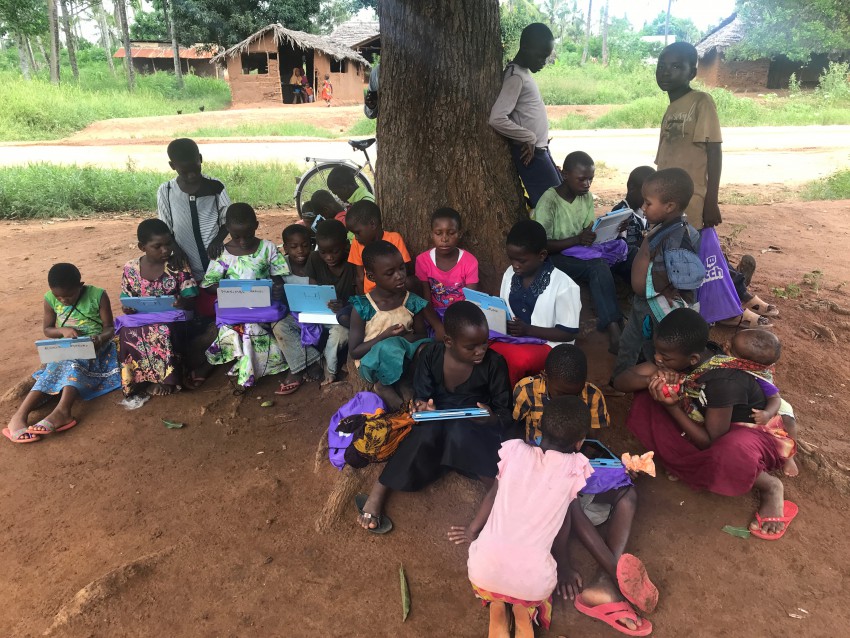We are in the midst of an education crisis: 100 million young children will never get a chance to attend school while another 250 million go to school yet leave without ever having learned how to read, write, or use basic numbers. Massive human potential is untapped, and the world is poorer and less productive as a result.
Improving the Current Education System
Progress by governments and the international community towards the lack of access to quality education, as well as the number of out-of-school children, has been frustratingly inadequate. The pace of school construction has been painfully slow and the global shortage of teachers, particularly in Sub-Saharan Africa, is growing. UNESCO projects that countries will need an extra 69 million teachers in classrooms in order to achieve universal primary education by 2030. Given the current pace of progress, 47 percent of primary-school-aged children who are currently out of school are unlikely to ever enter school.
Just as troubling is the quality of education in existing schools. Across the world, 250 million young people leave school without the skills they need to thrive. The focus is often on rote learning, without teaching children how to think. This global failure in offering even the most basic education to children represents the squandering of enormous human potential, resigning millions to lives of destitution and hopelessness.
But we are on the cusp of a moonshot moment where the merging of advances in neuroscience, computer technology, and child-driven learning methods can provide a transformation in the lives of children around the world, guaranteeing universal access to education and thus realizing both the fulfillment of a basic human right as well as SDG 4: Quality Education for All. The world needs to take note of what is happening in this rapidly developing space and thus invest in the kind of scalable technologies that have the capability of reaching every single child, regardless of economics or geography.
All children have a natural curiosity and an inherent ability to create, communicate, and express themselves. The challenge then becomes how to create learning opportunities that nurture these talents in ways that make learning joyful and thereby incentivize children to take charge of their own education. As anyone who has ever witnessed a small child play on a smart phone or tablet computer knows, these devices are highly engaging. Because children intuitively understand how to use the applications on such devices, they are quickly able to manipulate the apps and maneuver the device.
 In the Photo: A group of women and children look intriguingly upon two tablets. Photo Credit: XPRIZE.
In the Photo: A group of women and children look intriguingly upon two tablets. Photo Credit: XPRIZE.
Computer-based learning enables children to learn at their own pace, without having to adhere to a rigid schedule. This is particularly important in impoverished communities where children are expected to contribute to the work of the family, leaving little time for formal education.
Successes in Technology-Based Learning
Early experiments in using technology for self-directed learning have shown that children in non-literate communities with no access to school and no prior experience with a computer are able to organize themselves into learning communities, where children of a wide range of ages teach themselves as well as each other. For example, in a hole-in-the-wall experiment in India, where a computer was placed in a community without any instruction, children developed a proficiency in computer literacy rivaling that of children who receive explicit instruction in school.
 Toward the end of my time with One Laptop per Child, I helped to manage a demonstration project in remote Ethiopia in conjunction with MIT, Tufts University, and Georgia State University that presents further evidence of the efficacy of child-based learning. Within one year, 40 children who lived beyond the reach of schools in two largely illiterate villages achieved remarkable progress using tablets. With no adults to teach them, many of these children learned the alphabet, could recognize almost all the letters, and could write letters from memory. A few of the children were even on the cusp of reading.
Toward the end of my time with One Laptop per Child, I helped to manage a demonstration project in remote Ethiopia in conjunction with MIT, Tufts University, and Georgia State University that presents further evidence of the efficacy of child-based learning. Within one year, 40 children who lived beyond the reach of schools in two largely illiterate villages achieved remarkable progress using tablets. With no adults to teach them, many of these children learned the alphabet, could recognize almost all the letters, and could write letters from memory. A few of the children were even on the cusp of reading.
 In the Photo: Two schoolchildren with their teachers in Peru using laptops distributed by One Laptop per Child. Photo Credit: One Laptop per Child.
In the Photo: Two schoolchildren with their teachers in Peru using laptops distributed by One Laptop per Child. Photo Credit: One Laptop per Child.
This work led directly to the $15 million Global Learning XPRIZE, which I led for six years. Sponsored by Elon Musk, we challenged teams from around the world to develop open-source content and software aimed at accelerating child-driven learning. The winner – who will be announced in May – will be the team that brings their cohort of children, both individually and together as a group, from zero literacy to the highest level of literacy in the subjects of reading, writing, and math. XPRIZE – in conjunction with the United Nations World Food Programme and UNESCO – is currently testing the applications of five finalist teams among 2,500 out-of-school children in 141 remote villages in Eastern Tanzania, making this field test at this scale the first of its kind anywhere in the world.
 In the Photo: A group of schoolchildren at the Tree School in Tanzania using XPRIZE technology. Photo Credit: XPRIZE.
In the Photo: A group of schoolchildren at the Tree School in Tanzania using XPRIZE technology. Photo Credit: XPRIZE.
UNESCO is also using this field test as an opportunity to study how the introduction of learning technology changes behavior in remote communities. What they have discovered so far is that children are bathing more frequently in order to get ready for school, since the increased use of the tablet makes them believe that they are going to school more often. Children are teaching and learning from each other as well as teaching their parents. Disabled children have access to learning for the first time in their lives. Children who dropped out of school because they were embarrassed of not being able to read are now returning, since the tablet has given them the confidence they need.
The Future of Educational Technology and SDG 4
It appears that the tablet and its technology are infinitely patient teachers, allowing the students to overcome any fear of failure. The only way to guarantee access to learning – a fundamental human right – is to therefore use technology as a means to that end, and not as the end itself. The time is right, and the idea is being considered by multi-lateral institutions who see this as the future of learning on a much larger scale. Yet, more still needs to be done.
Even as more and more evidence floods in regarding the efficacy and excitement of technology-enabled self-learning, there is still no hardware platform that is sustainable enough to ensure that a child will be able to carry his or her device around for years at a time without worry that it will break, that it will need an outlet to charge, or that normal environmental conditions will not rapidly degrade it. Hardware manufacturers must begin to design for the bottom billion, keeping in mind that parents will invest in technology if it will help their children develop the skills they need to lead a more prosperous future. Governments must also begin to see this kind of technology not only as a worthwhile investment in reaching out-of-school children, but also as a supplement to school systems that are often overwhelmed by a lack of teachers and a surplus of students within a single class.
In addition, the circulation of applications designed for self-learning through smart phones provides real opportunity for millions of children around the world. Telecomm companies should lead the effort to reach children in the most remote places worldwide, due in part to the increase of smart phone penetration at ever-accelerating rates. By being strategic about how we currently use existing technology and resources, we could begin the mission of reaching every single child on the planet, and finally realize Article 26 of the Universal Declaration of Human Rights: The Right to Education for All.
SDG 4 can be realized with the use of technology that gives children the freedom to learn and experiment at their own pace. We are on the cusp. A generation of children awaits.
EDITOR’S NOTE: The opinions expressed here by Impakter.com columnists are their own, not those of Impakter.com.
Featured Image — In the Photo: Schoolgirls in Afghanistan using laptops distributed by One Laptop per Child. Photo Credits: One Laptop per Child.
Related Articles: “Spreading Worldwide Education: An Interview with Learning Equality” by Christopher Wu.
“Lowering the Carbon Footprint of Education — A Model of Online Learning” by Dr. Hazel Partington and Dr. Jean Duckworth.













